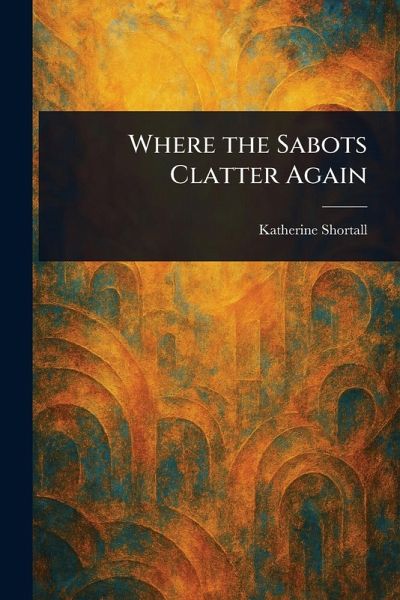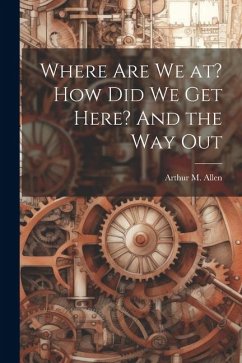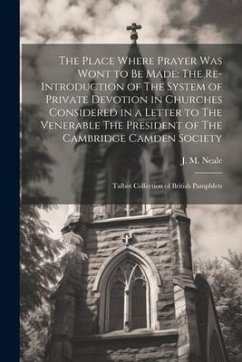
Where the Sabots Clatter Again
Versandkostenfrei!
Versandfertig in über 4 Wochen
14,99 €
inkl. MwSt.

PAYBACK Punkte
7 °P sammeln!
Step back in time to early 20th century France with Katherine Shortall's "Where the Sabots Clatter Again," a captivating glimpse into French village life and culture. This meticulously prepared print republication offers a unique window into a bygone era, exploring the customs and traditions that shaped social life in France during this pivotal period. Delve into the heart of French civilization, experiencing the everyday rhythms and enduring spirit of its people. Shortall's work provides invaluable insight into a society balancing tradition and change, revealing the essence of French culture ...
Step back in time to early 20th century France with Katherine Shortall's "Where the Sabots Clatter Again," a captivating glimpse into French village life and culture. This meticulously prepared print republication offers a unique window into a bygone era, exploring the customs and traditions that shaped social life in France during this pivotal period. Delve into the heart of French civilization, experiencing the everyday rhythms and enduring spirit of its people. Shortall's work provides invaluable insight into a society balancing tradition and change, revealing the essence of French culture through its social fabric. Perfect for readers interested in history, travel, and the timeless allure of France, "Where the Sabots Clatter Again" offers a rich and rewarding journey to a world where the echoes of the past still resonate. Experience France as it was, a land of captivating beauty and enduring charm. This work has been selected by scholars as being culturally important, and is part of the knowledge base of civilization as we know it. This work is in the public domain in the United States of America, and possibly other nations. Within the United States, you may freely copy and distribute this work, as no entity (individual or corporate) has a copyright on the body of the work. Scholars believe, and we concur, that this work is important enough to be preserved, reproduced, and made generally available to the public. We appreciate your support of the preservation process, and thank you for being an important part of keeping this knowledge alive and relevant.














